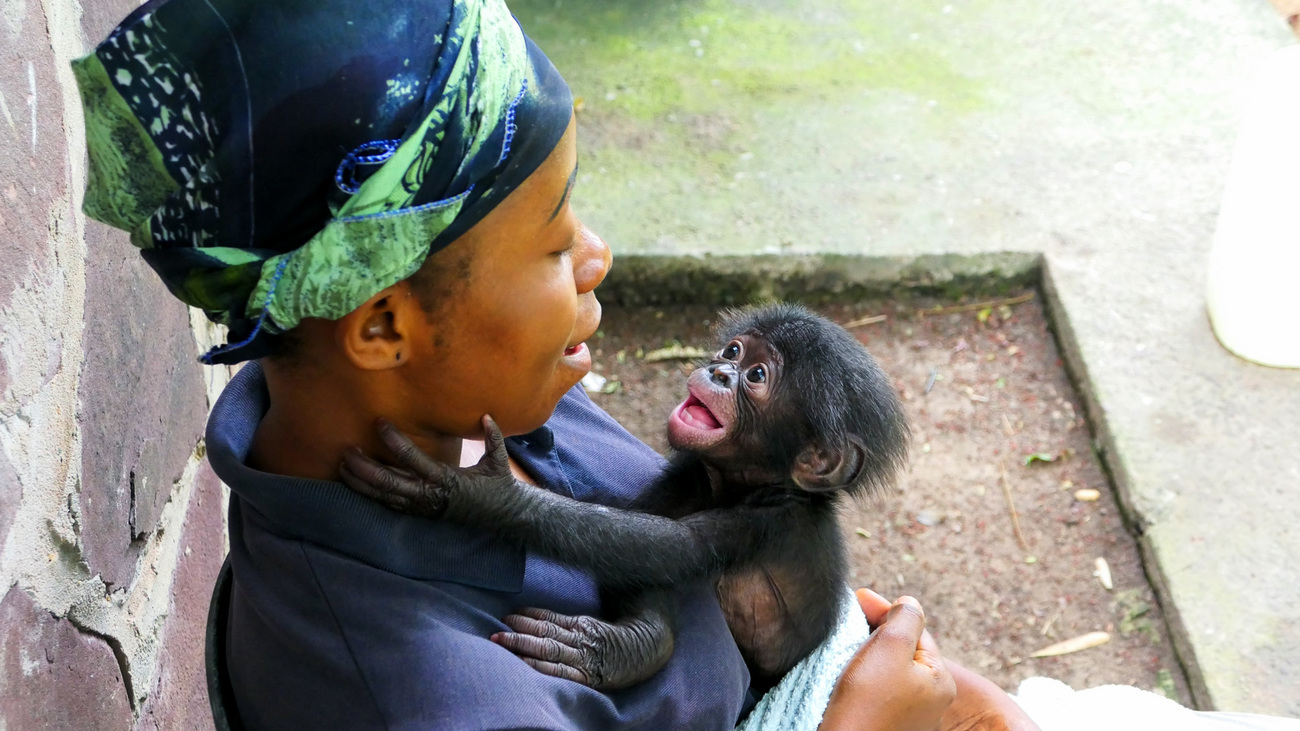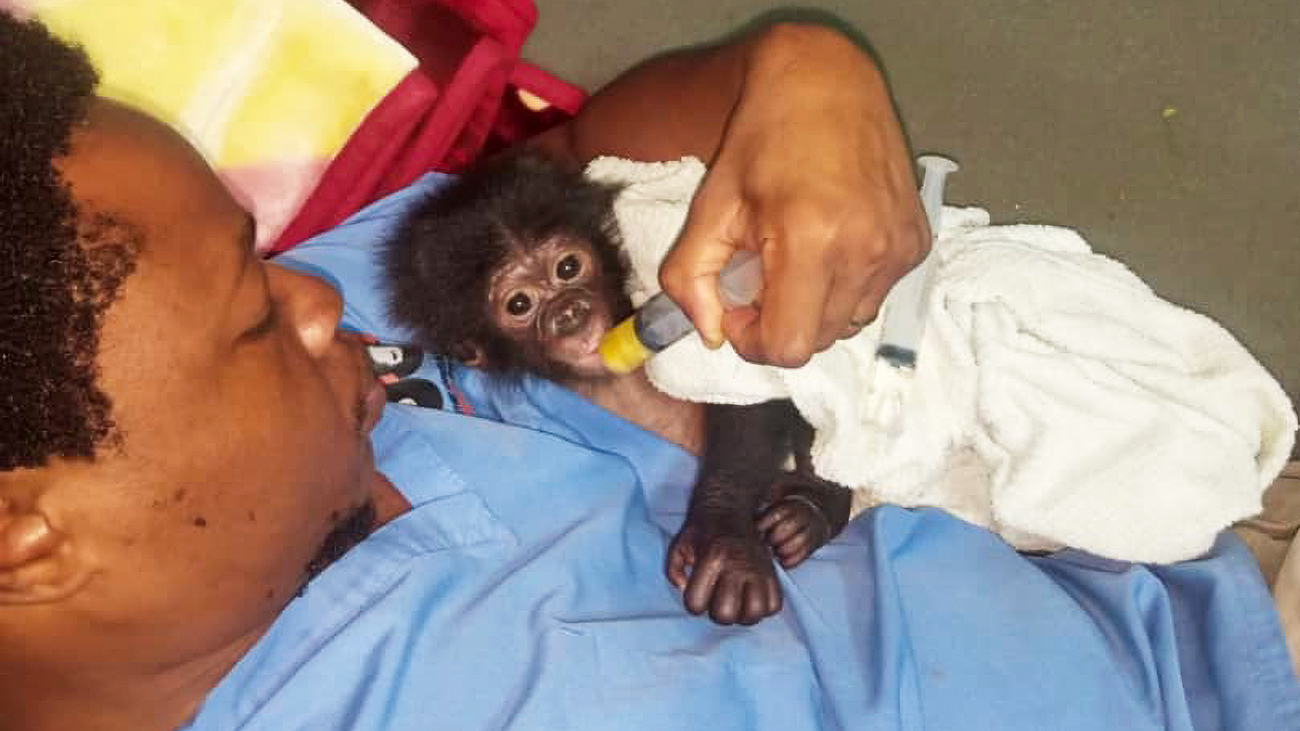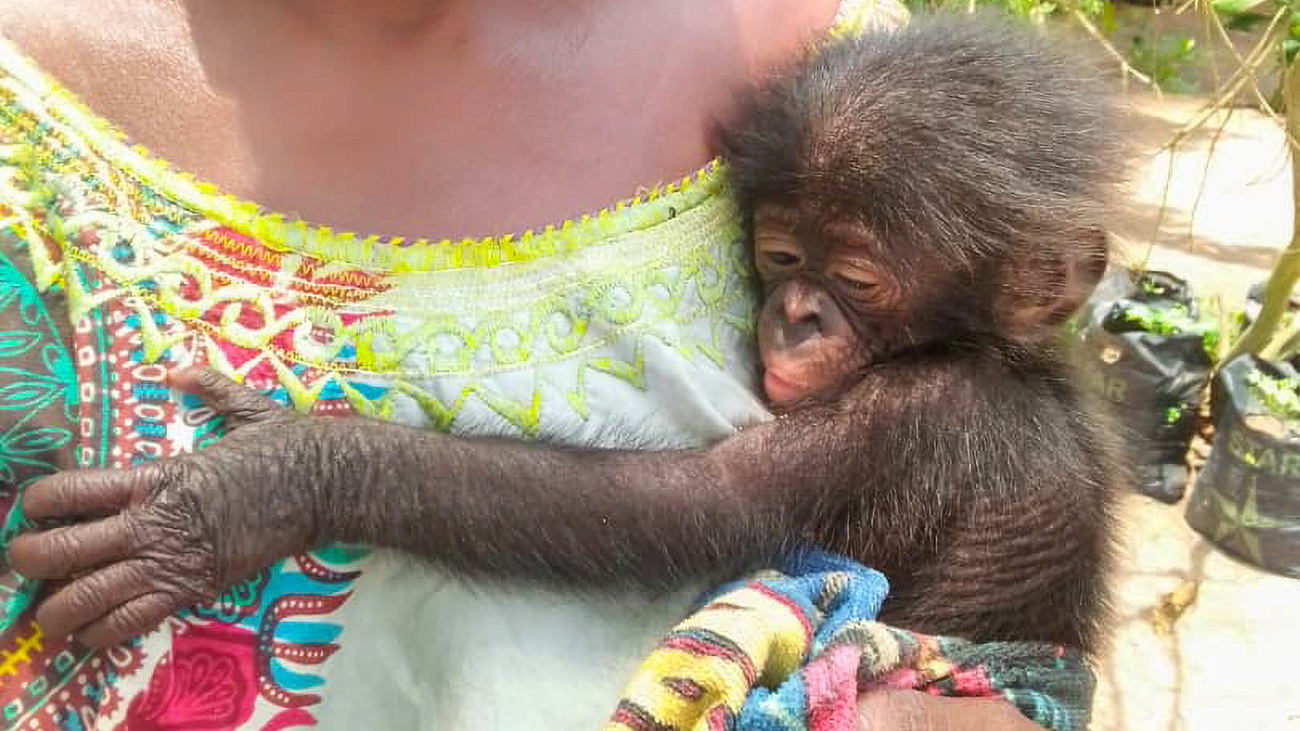Combating illegal wildlife trade - Greater Virunga Landscape
strengthening community participation across bordersThe rescue and recovery of Ikoto, an orphaned bonobo sold into captivity
The rescue and recovery of Ikoto, an orphaned bonobo sold into captivity

At three months old, a young bonobo named Ikoto fell victim to illegal wildlife trade. He was taken from his mother and his home in the wild and sold into captivity. This is an unfortunate plight faced by many bonobos and other apes, as they are often kept as pets.
With IFAW’s support, in March 2023, Ikoto was rescued and brought to the sanctuary run by Friends of Bonobos in the Democratic Republic of the Congo, Lola ya Bonobo—he was the youngest orphan to ever come into the sanctuary’s care. Though we don’t know the exact circumstances of how Ikoto was separated from his family, he was traumatised due to the stress of having been stolen from his mother at such a young age, and his age also made him highly susceptible to illness and infection. He spent his first night with veterinarian Dr. Jonas, receiving around-the-clock care from the team. One member of the Friends of Bonobos team, Huguette, became his surrogate mother.

Seven months later, Ikoto is recovering and growing well. The Friends of Bonobos staff are experts in emotional rehabilitation, which has helped Ikoto go from a traumatised orphan to a courageous and confident young bonobo. They also received help from nutritional experts to make sure Ikoto was properly nourished.
This year, Lola ya Bonobo has seen a near-record number of rescues. So far, seven orphans have been brought to the sanctuary, each of which begins in a quarantine period. During and after this time, baby bonobos require full-time care, including bonding with and receiving affection from a surrogate mother, due to their trauma of being orphaned—in the wild, bonobos remain with their mother for about four years. Thanks to the amazing staff, all the young bonobos are currently in recovery.

It is important to remember that bonobos are not pets. Bonobos are an endangered species, and bringing them into the pet trade is illegal. However, it still unfortunately occurs, especially with baby bonobos. These young apes often witness the slaughter of their families, as they must be separated from them to be captured and sold. In addition, bonobos face the threats of poaching for bushmeat, habitat loss, and disease, all of which are threatening their survival as a species.
These apes play a crucial role in maintaining healthy ecosystems within their rainforest habitats. By eating fruit and vegetation, they disperse seeds and encourage plant growth. Their feeding habits also reduce competition between plants and allow more sunlight to reach the forest floor, supporting the thousands of plant species native to the Congo Basin.
The exotic pet trade, including illegal trade, affects countless animals around the world, including bonobos and other great apes. Fighting wildlife crime at the policy level and rescuing the animals it has claimed as victims are some of IFAW’s top priorities.
Interested in helping bonobos like Ikoto? IFAW is working to protect them from illegal trade and keep them in their natural habitats.
Related content
Our work can’t get done without you. Please give what you can to help animals thrive.